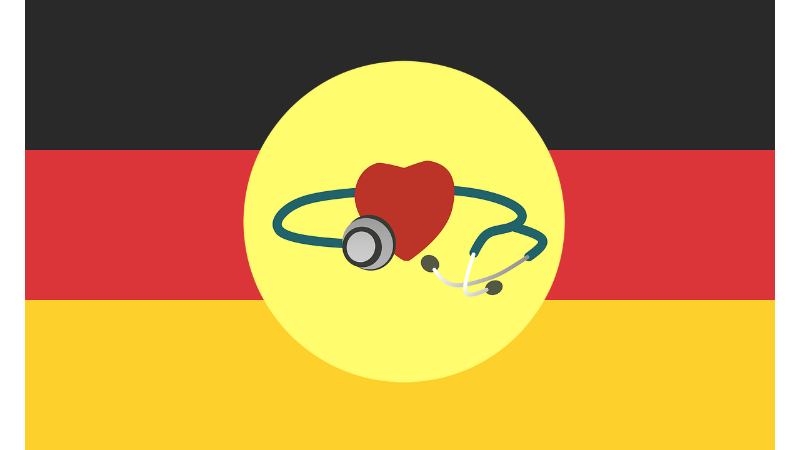
Healthcare Installment Loans In Germany
In Germany, healthcare installment loans can help cover medical expenses that aren't fully reimbursed by statutory or private health insurance, making treatments more accessible for those in need. Here’s a detailed look at these loans:
1. What Are Healthcare Installment Loans?
-
Healthcare installment loans are Germany financial products specifically designed to help patients pay for medical treatments or healthcare services through manageable monthly payments.
-
They often cover procedures that may not be fully reimbursed by insurance, such as dental treatments, elective surgeries, or specialized therapies.
2. How They Work in Germany
-
Loan Providers: Banks, specialized healthcare financing companies, and some medical facilities offer these loans.
-
Germans Application Process: Applicants typically submit proof of income, creditworthiness, and treatment cost estimates. If eligible, the lender disburses funds directly to the healthcare provider or the patient, depending on the arrangement.
-
Repayment: These loans are repaid in monthly installments over a set period. Terms vary widely, from a few months to several years, depending on the loan amount and the borrower’s credit profile.
3. Popular Uses
-
Germany Dental Treatments: Covers costs for high-quality dental implants, crowns, orthodontics, or cosmetic dental procedures.
-
Elective Surgeries: Includes procedures like vision correction (LASIK), aesthetic surgeries, and other non-emergency treatments.
-
Wellness & Therapy: Alternative treatments, physiotherapy, mental health treatments, and wellness retreats that are often only partially insured.
4. Advantages
-
Affordability: Allows patients to spread costs over time, easing the financial burden of large medical expenses.
-
Flexibility: Some lenders offer flexible repayment options and low-interest rates for Germany healthcare loans.
-
Quick Access: Most healthcare installment loans have faster approval and funding times, especially for urgent treatments.

5. Considerations and Eligibility
- Interest Rates: Rates can vary based on the lender and borrower’s credit history, so comparing options is essential.
- Germany Insurance Coverage: It’s worth checking what your statutory or private health insurance will cover before applying for a loan.
- Credit Check: A good credit score is typically required for favorable loan terms. However, some lenders may offer loans to those with moderate credit at higher interest rates.
- Alternative Financing: Certain insurance plans or policies might offer partial reimbursements or financing options, which can sometimes be a better alternative.
Healthcare installment loans in Germany serve as a vital tool, enabling patients to manage and afford necessary treatments beyond the scope of traditional health insurance coverage.
Healthcare installment loans in Germany offer several advantages, particularly for those facing high medical costs that aren’t fully covered by insurance. Here are some key benefits:
1. Improved Access to Treatments
-
Healthcare loans provide the financial flexibility to afford necessary or elective treatments, including dental procedures, physical therapy, and specialized surgeries, without having to pay the full amount upfront.
2. Spread-Out Costs for Easier Budgeting
-
By converting a lump-sum expense into manageable monthly installments, these loans help patients avoid immediate Germany financial strain, making large expenses more feasible within a monthly budget.
3. Quick Access to Funds
-
Many lenders prioritize healthcare financing, often offering faster application processing and quick access to funds, which can be crucial when dealing with urgent Germany medical needs.
4. High Flexibility in Loan Terms
-
 Lenders frequently offer flexible repayment periods and personalized loan terms, allowing Germany borrowers to select a term that suits their financial situation, whether they prefer to repay over a shorter or extended period.
Lenders frequently offer flexible repayment periods and personalized loan terms, allowing Germany borrowers to select a term that suits their financial situation, whether they prefer to repay over a shorter or extended period.
5. Low or Competitive Interest Rates
-
Certain healthcare financing providers or partnerships with medical facilities offer lower Germany interest rates specifically for healthcare expenses, potentially making these loans more affordable than standard personal loans.
6. Option to Choose Desired Treatments
-
With access to financing, patients have greater freedom to choose the treatment options that best fit their needs and preferences, even if they are more advanced or higher quality than the standard care covered by insurance.
7. Preservation of Savings
- Healthcare loans allow individuals to pay for significant medical expenses without dipping into personal savings or Germany emergency funds, preserving financial stability for other needs.
Healthcare installment loans in Germany thus provide a valuable financial resource, enabling better access to healthcare by removing upfront cost barriers and offering a more accessible path to comprehensive car.Healthcare installment loans in Germany include a number of advantages, which prove to be especially important for those patients whose medical bills come out too high and are not fully covered by their insurance coverage. Some of the major benefits include but are not limited to the following:
1. Greater Access to Procedures
Healthcare loans facilitate access to such treatments and procedures that become necessary or desirable, like dental and physical therapy, among other specialized surgeries, without having to pay for all services upfront.
2. Costs Can Be Spread Out For much easier budgeting
They help the patients avoid immediate Germany financial strains by converting a lump-sum expense into manageable monthly installments, hence making large expenses within a month's budget feasible.
3. Quick Access to Funds Most lenders prioritize healthcare financing, and this often means faster application processing and quick access to funds, which could be important in dealing with urgent German medical needs.
4. High Flexibility in Loan Terms
Lenders often have flexible payment terms and loan conditions, so the borrower can be given a term of their convenience for repayment, according to what their budget can cover and desire. This may take less time or a longer one depending on how they will find comfortable repaying.
5. Low or Competitive Interest Rates
Some health financing German companies or alliances with medical centers offer Germany lower interest rates for health spending, and therefore this makes this credit product more competitive with regular personal loans.
6. Ability to Undertake Desirable Treatment
Therefore, access to financing implies greater freedom of choice in treatment, which can be much more advanced and of higher quality than the standard care that insurance usually covers.
7. Savings Preservation
Healthcare loans allow patients to cover major medical expenses without resorting to personal savings, let alone an emergency money reserve, meaning financial stability for other needs is not affected.
Health care installment loans in Germany therefore provide a valuable financial resource by making health care more accessible and offering an easier way into comprehensive car.
Healthcare installment loans in Germany can be helpful, but they also come with some potential disadvantages that Germany borrowers should consider:
1. Interest Costs
-
While these loans can make healthcare expenses more manageable, they also involve interest, which can significantly increase the overall cost of treatment. Rates vary based on creditworthiness a
 nd the lender, potentially adding financial pressure, especially with longer repayment terms.
nd the lender, potentially adding financial pressure, especially with longer repayment terms.
2. Potential Debt Accumulation
-
Taking out a healthcare loan may add to an individual’s existing debt load. For those with limited financial resources, managing an additional monthly payment can be challenging and may increase the risk of default.
3. Impact on Credit Score
-
Missing payments or struggling with repayment can negatively affect a borrower’s Germany credit score, making it more challenging to access future loans or credit. A poor credit history may also limit the availability of other Germany financial resources.
4. Limited Scope of Coverage
-
Healthcare installment loans typically cover only specific expenses and treatments. If the patient’s financial need goes beyond the approved loan amount, they may still face out-of-pocket expenses or have to seek additional financing.
5. Eligibility Requirements
-
Some healthcare loans have strict eligibility requirements, including credit checks and income verification. Patients with lower credit scores may face higher interest rates or be denied altogether, limiting options for those who may need financial support the most.
6. Commitment to Repayment
-
Unlike personal savings or insurance reimbursements, loans require a fixed commitment to monthly repayments. This inflexibility can be a drawback for borrowers whose financial situations might change unexpectedly.
7. Potential for Predatory Lending
-
Some lenders target vulnerable individuals in need of urgent Germany healthcare, offering loans with high-interest rates and fees. Without careful consideration, borrowers might end up in agreements that are difficult to repay and lead to greater Germany financial strain.
8. Dependency on External Financing
-
Relying on healthcare loans can create a dependency on external financing for medical needs, which may discourage proactive financial planning for healthcare expenses.
While healthcare installment loans can be beneficial for managing immediate medical costs, understanding these Germany potential drawbacks can help individuals make informed decisions about whether a loan is the best option for their financial and healthcare needs.
Healthcare installment loans in Germany are governed by several financial and consumer protection German policies. These policies ensure transparency, protect borrower rights, and outline specific criteria for loan eligibility and repayment. Here are the key aspects of healthcare installment loan policies in Germany:

1. Loan Eligibility Criteria
-
Creditworthiness: Lenders assess the borrower’s credit score (using Schufa, Germany’s credit reporting agency) to determine their eligibility and interest rate. A good credit score generally leads to more favorable loan terms.
-
Income Verification: Germany Borrowers are typically required to submit proof of income, such as pay stubs or bank statements, to verify that they can handle monthly payments.
-
Residency Status: Most Germany loans require borrowers to be residents of Germany, with an address and sometimes a valid work permit, particularly for non-EU residents.
2. Interest Rates and Repayment Terms
-
Fixed or Variable Interest Rates: Lenders may offer both fixed and variable interest rates. Fixed rates remain stable throughout the loan term, while variable rates can fluctuate based on the market, potentially increasing costs.
-
Loan Term Flexibility: Borrowers can typically select loan terms ranging from several months to a few years, depending on the loan amount and Germany lender policies.
-
Early Repayment Policy: According to German law, Germany borrowers have the right to repay the loan early, either partially or in full, often with a reduced interest cost. However, some lenders may charge
 a nominal early repayment fee.
a nominal early repayment fee.
3. Transparency Requirements
-
Loan Disclosure: Lenders are required by law to disclose all terms and conditions clearly before the loan is signed, including interest rates, fees, and the total cost of borrowing.
-
No Hidden Fees: German financial regulations strictly prohibit hidden fees. All costs associated with the loan, including administrative fees, must be stated upfront.
4. Consumer Protection Policies
-
Right to Withdraw: Under German consumer protection laws, Germany borrowers have a 14-day “cooling-off” period to withdraw from the loan agreement without incurring penalties.
-
Fair Lending Practices: Germany’s strict consumer finance laws are designed to prevent predatory lending practices. Regulatory bodies like BaFin (Federal Financial Supervisory Authority) ensure that lenders operate ethically and transparently.
-
Data Privacy: German and EU data protection regulations (GDPR) require lenders to secure and limit the use of Germany borrowers’ personal information strictly to the loan process.
5. Debt Collection and Default Policies
-
Grace Periods and Payment Flexibility: Some lenders may offer short grace periods or payment flexibility for Germany borrowers experiencing financial hardship, though this varies by lender.
-
Default Protocols: If borrowers miss payments, Germans lenders may charge late fees and eventually pass the debt to a collection agency. Severe cases can affect the borrower’s credit score and lead to legal action.
6. Specialized Medical Financing Options
-
Collaborative Financing Options: Some healthcare providers partner with Germany financing companies to offer loans directly for specific treatments, like dental or cosmetic surgery. These arrangements often feature lower interest rates and flexible repayment terms.
7. Loan Insurance (Ratenkreditversicherung)
-
Borrowers can opt for loan Germany insurance, which covers repayments in case of illness, job loss, or other unforeseen events, helping reduce financial risk during the loan term.
8. Monitoring by Regulatory Authorities
-
BaFin and Consumer Advocacy Groups: The Federal Germany Financial Supervisory Authority (BaFin) and German consumer rights organizations monitor lenders to ensure compliance with these policies, helping protect borrowers from unfair practices.
These policies work together to offer structure, security, and transparency in Germany’s healthcare installment loan market, allowing patients to finance necessary medical care responsibly and with legal protections in place.
Posted on 2024/10/31 08:35 AM
